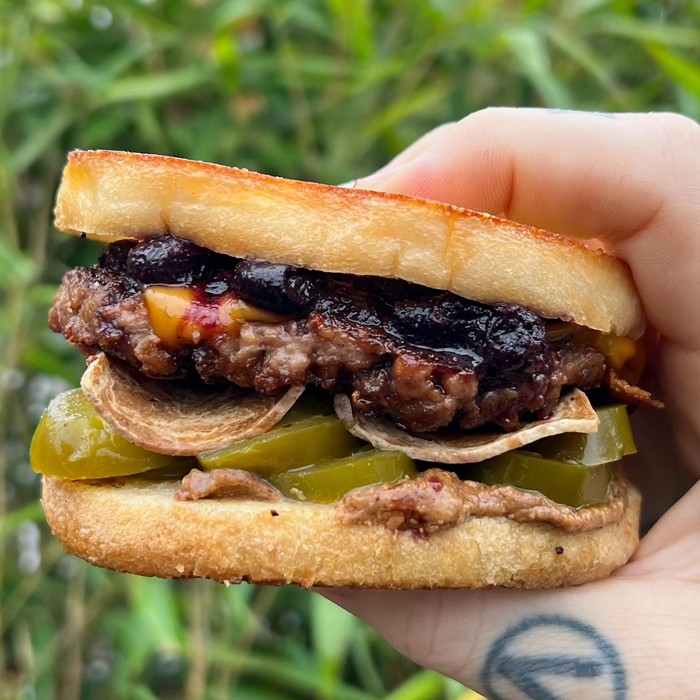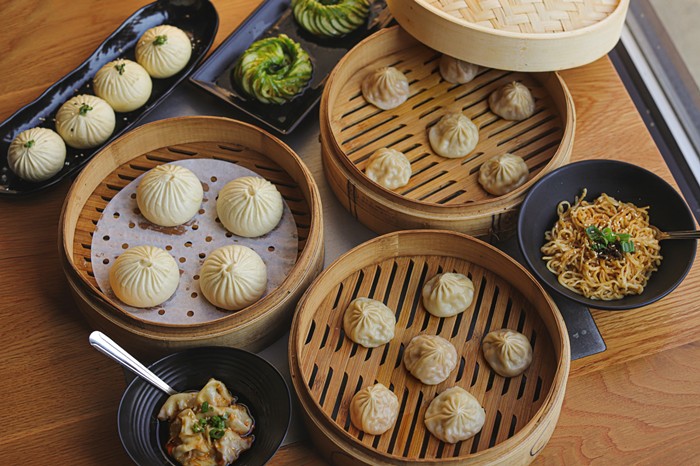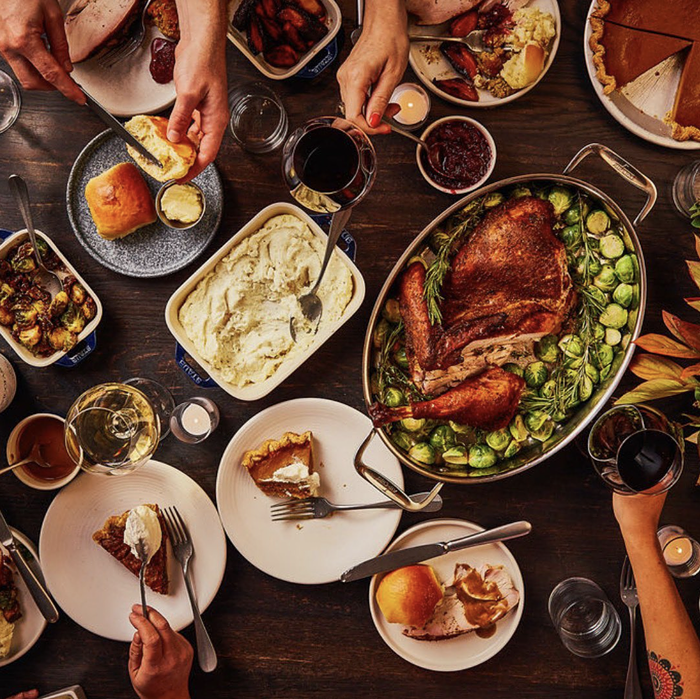The Disappearing Food Cart
Cheap Lunches are a Portland Food Cart Staple, But Is Rampant Development Signaling the Death of the Pod?
Raising the Salad Bar
Searching for a Reasonably Priced Salad Should Not Be This Hard
The Simple Sandwich
In Search of a Proper British Cheese ’N’ Pickle
Who Makes Portland’s Best Pizza by the Slice?
The ultimate list meant to surely infuriate anyone who reads it.
Cheap Lunches!
Sixty Places to Get Inexpensive Noontime Eats
Deepak Saxena says that when he opened his DesiPDX cart at Northeast 15th and Alberta in 2015, he knew the corner—with a Bamboo Sushi and a Barista not far away—was ripe for redevelopment.
So it didn’t come as a surprise when he was told the land was for sale—although learning he had just six weeks to find a new place to serve his cardamom chai chicken and pakora waffles was a shock. Fortunately, he said, the owner of Prost! on North Mississippi, with its thriving food cart pod outside, made him an offer and he happily jumped.
“I really wanted that security of moving somewhere and not having to move again in a couple of years,” Saxena says. “It’s a little frustrating. I know people are moving here and are drawn to Portland because of our food cart pods and our culture. But because they’re moving here, all these food cart pods are being torn down.”
Saxena says business is better at his new location, so ultimately he’s happy with the move. But as Portland continues to boom, cart pods throughout downtown and the city’s inner core are being earmarked for redevelopment, leaving these symbols of Portland’s quirky DIY steez scrambling for new options.
Cart pods are a Portland phenomenon, often placed on surface parking lots as a way for owners to make extra money while they wait for their urban land to be bought up. Closures aren’t new, but recent news of the possible sale of the iconic downtown pod at Southwest 9th and Alder (plans show a 33-story tower) and, one block over, at Southwest 10th and Washington (set to become a 12-story boutique hotel) has cart watchers wondering how the city can strike a balance to keep its pods while also continuing to grow.
“It’s natural that pods are going to be pushed out [east] a little, or they’ll have to get more creative,” says Joe St. Martin, co-owner of Scout Beer. Scout had a tap cart in the Tidbit Cart Pod on Southeast 28th and Division, and when the 20-some carts were moved out in 2017 for apartments, Scout leased land a little over a mile east on Southeast 50th and Division. Opened this spring, the new location boasts a taproom that opens to a handful of carts and outdoor seating.
St. Martin pointed to the brewery/bar and cart trend—Prost!, Scout, Cully Central, and the newly opened Baerlic Brewing location at Northeast 60th and Halsey are all examples—as a way to flourish. While many of the pods were “clearly done to make money on a lot until they were ready to sell,” St. Martin says he sees pods with more creature comforts and family-friendly atmospheres as the future.
Portland-based urban planner Lizzy Caston, who has also written about food and culture for local publications, says the loss of massive downtown cart pod space (AKA parking lots) was inevitable.
“My take as an urbanist and a food lover is, ‘Dude, they’re on wheels. They were always meant to be a temporary use of space,’” Caston says. “I don’t mean to be harsh about it, because I support carts on all levels... but I don’t think a whole city block of vacant parking lots is the best use of space, especially when we’re in a housing shortage.”
Caston predicts inner-city prices will eventually be unaffordable for all stripes of local small businesses, as in New York City and San Francisco. And while she thinks the size, style, and location of food carts will change, Caston says that doesn’t mean the city shouldn’t be proactive about helping them find a new way.
She suggested the possibility of allowing carts to set up in blighted public spaces, like the Park Blocks, the north end of the waterfront near the Steel Bridge, or working out agreements to move to unused ODOT easements.
“Someone should think about planning ahead, because we’re not going to have this land forever,” she says. “Our carts are where the diversity is. You don’t need a study on that, all you have to do is walk around the block. If we truly want to support immigrants and support diversity, we have to support the food carts.”
Saxena, who grew up eating traditional Indian food cooked by his parents, says he’d love to open a second cart in a neighborhood further east, but is worried there may not be the density and traffic for it. He also says a brick-and-mortar would be a dream, but he hasn’t even looked at commercial real estate prices, knowing they’re out of his reach.
“I don’t see that being affordable to the small mom- and-pop businesses that are getting kicked out and having to move further east,” Saxena says. “Are we losing that culture of truly small businesses? Are we going to lose that if this continues to happen?”


















